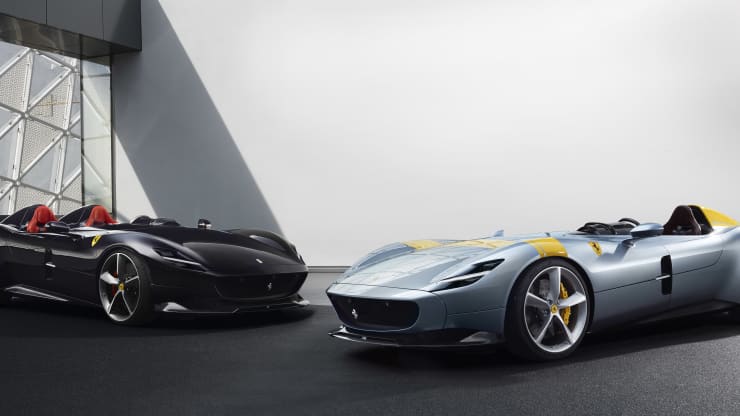In November 2021, Ferrari peeled the covers off a retro-themed limited-edition car dubbed the Daytona SP3. It is the carmaker’s take on vintage styling seamlessly combined with modern engineering and technology.
Enrico Galliera, Ferrari’s Head of Marketing, described the Icona line as a ‘timeless design of iconic Ferraris reinterpreted with innovative materials and state-of-the-art technology.’ The Daytona SP3 is the second chapter of Ferrari’s Icona series, a special Ferrari project kickstarted in 2018 with the Ferrari Monza SP1 and SP2.
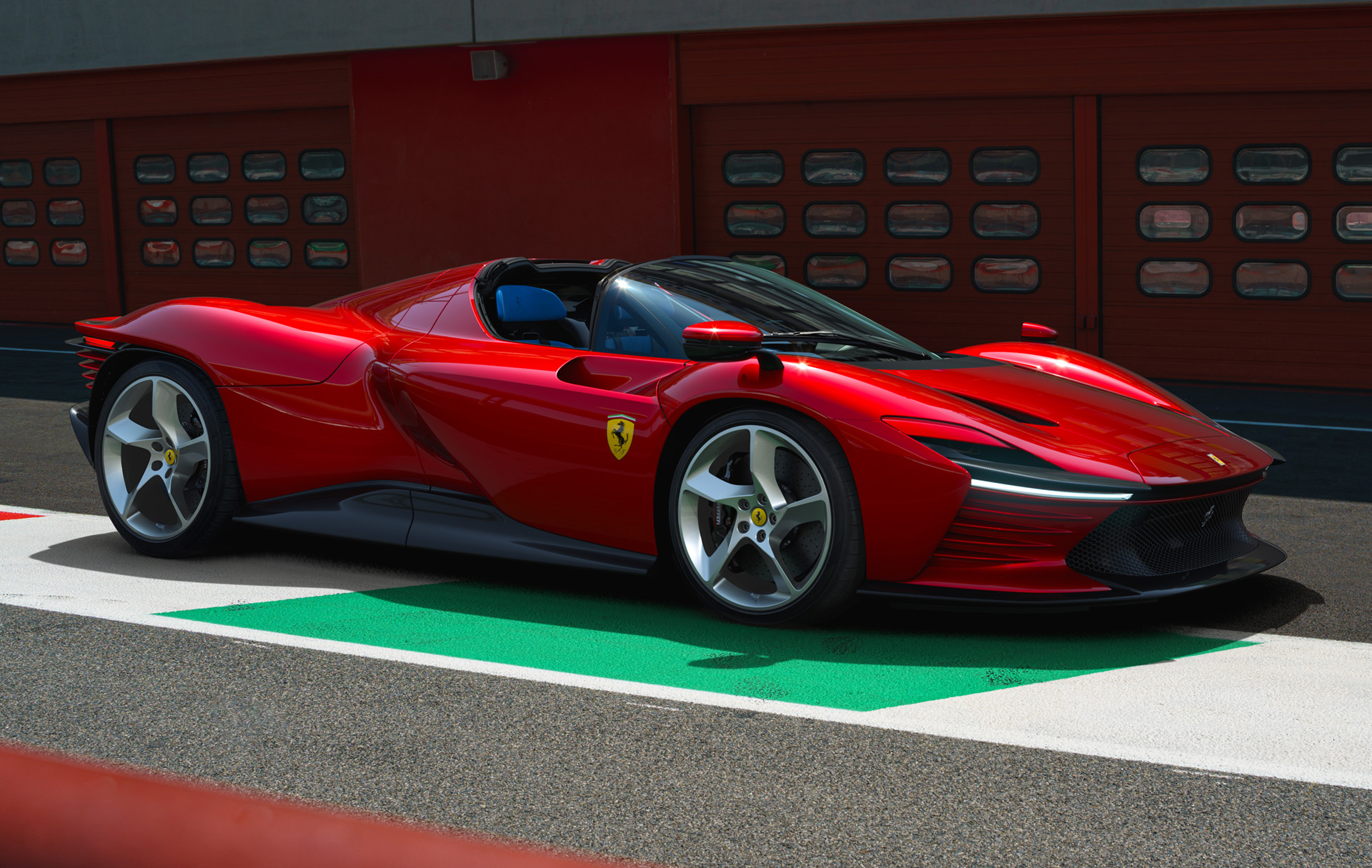
The Icona (Italian for ‘icon’) series is a double-edged program. On the one hand, it pays homage to Ferrari’s past, recognizing and celebrating iconic models that helped forge Ferrari into the supercar maker it is today. On the other hand, the series also embraces the future with limited edition cars that showcase the best of Ferrari’s engineering prowess.
Few carmakers have mastered the art of limited-edition productions like Ferrari. Based on current evidence, it looks like the Icona series will be chalked off as another big success for the company.
Ferrari will quickly point out that the Icona series presents a unique opportunity for its most loyal clientele to share in a part of the marque brand’s rich heritage. What it may not necessarily advertise is the fact that the Icona cars will inject much-needed cash flow into the company without diluting the exclusivity of the brand.
Yes, the financial angle was a crucial consideration for the Icona series project. It was no coincidence that the Monza SP1 and SP2 supercars were first unveiled during Ferrari’s ‘Capital Market day’ at Maranello back in September 2018.
The Monzas formed part of a five-year business plan that Ferrari executives presented to investors as part of the carmaker’s plan to boost revenue. It is no secret that limited edition supercars typically earn higher margins, and rolling out exclusive series cars would certainly not hurt the bottom line.
The Monza Duo: the Start of the Ferrari ICONA Series
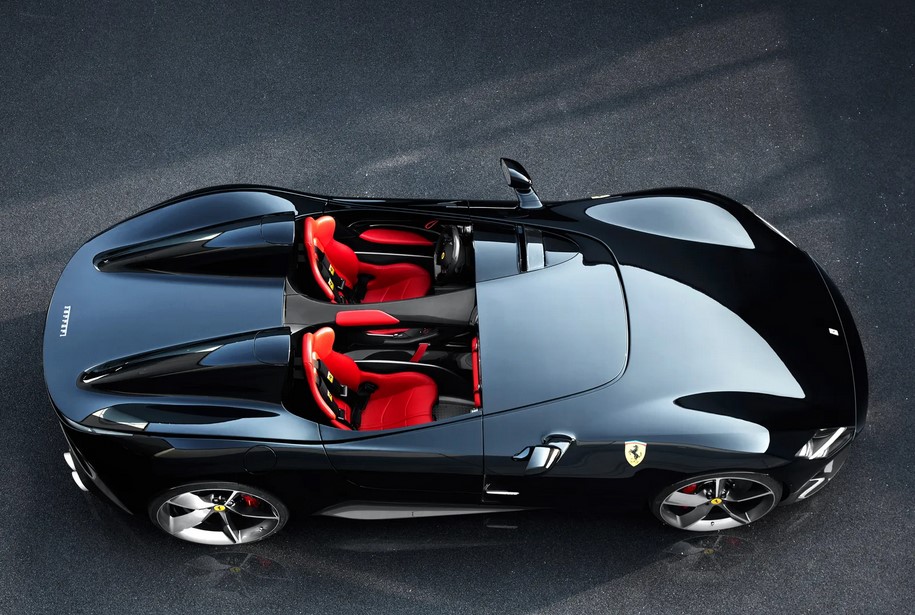
The Monza SP1 and SP2 featured provocative designs inspired by some of the most prominent Ferrari racing barchettas of the past. They included cars like the 1948 Ferrari 166 MM and ’50s Ferrari racers like the 750 Monza and 860 Monza. The Monza Icona cars, being ‘Barchetta’ inspired, featured no kind of roof or windscreen—the most significant single design highlight. The SP1, as the name implied, had only one seat, while the SP2 came with a passenger cockpit.
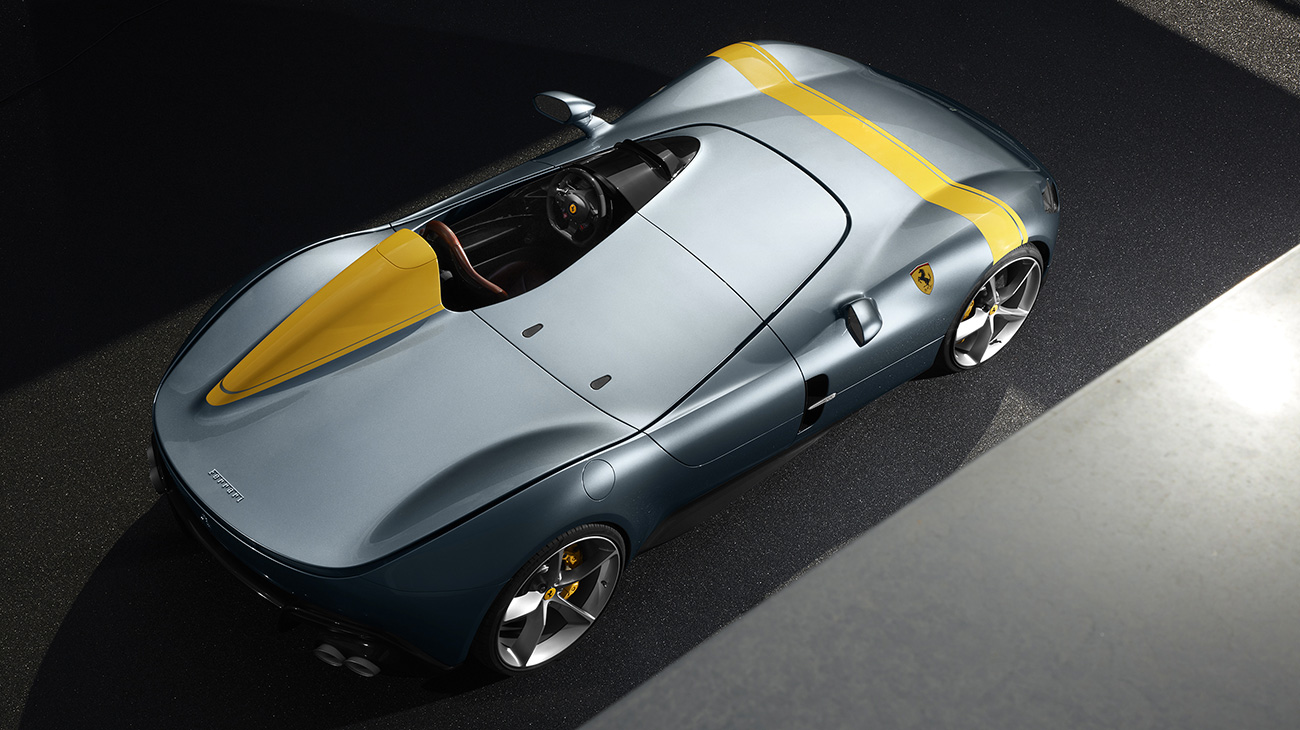
The Monza duo was not just about design; performance was just as important. After all, the car shared DNA with hardcore racers of the classic era. As a result, they were driven by the most potent powerplant Ferrari had at the time.
The 6.5-litre naturally aspirated V12 cranked out 809-hp and 530 lb-ft of torque. It was enough to get the car to 60 mph in under 3 seconds and on to a top speed of 186 mph.
The combined production run of the SP1 and SP2 is capped at 499 units, and unsurprisingly, all the build slots sold out before production even began. It mattered little that each car cost around $2 million, a price that included a race helmet and a few other accessories.
The selling price translates to a total revenue growth well in excess of $700 million for Ferrari. That is a conservative estimate, as it does not factor in the extra income from the extensive range of personalization options on offer.
An Instant Hit for the ICONA Series: The Ferrari Daytona SP3
The success of the Monza SP1 and SP2 provided the perfect backdrop for the next Icona car—the Daytona SP3. This time, Ferrari turned to its 1960s endurance racers to drive the design language, specifically the 330 P3 from 1966 and the 330 P4 from 1967.
Interestingly, the ‘SP3’ is not because the first cars were named ‘SP1’ and ‘SP2’. Instead, it’s a nod to Ferrari’s memorable 1-2-3 finish at the 1967 24 Hours of Daytona endurance race.
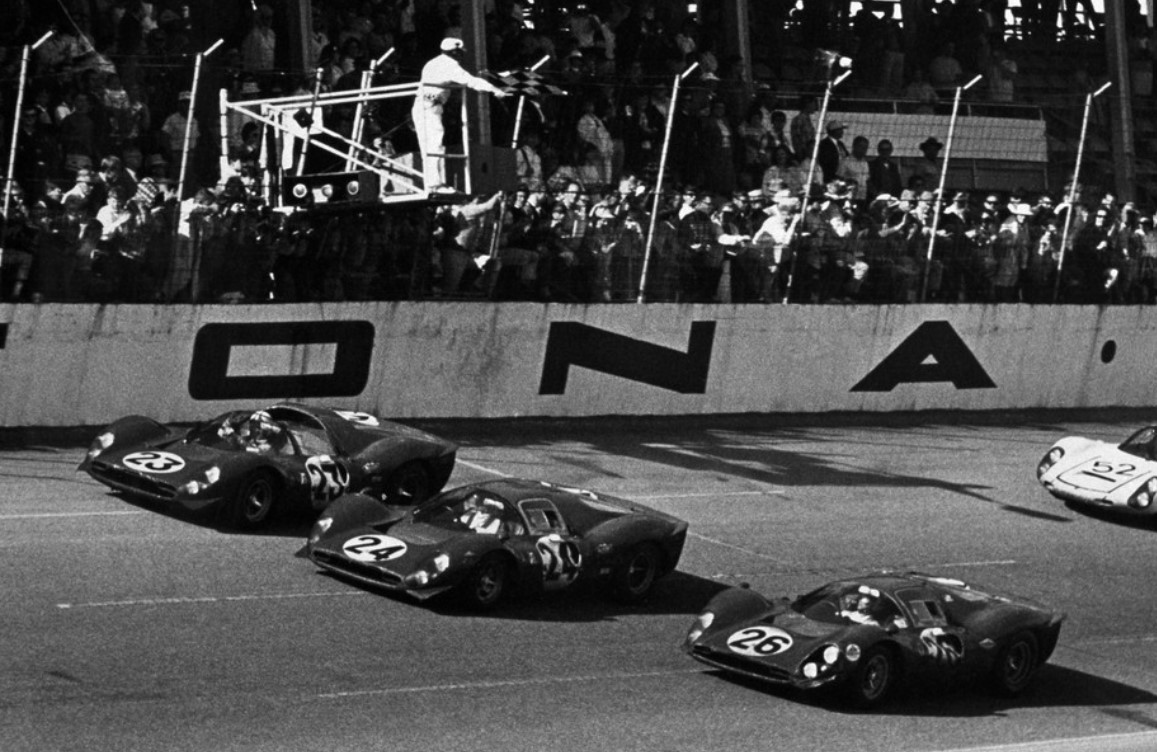
The Daytona SP3 also featured design cues borrowed from other classic Ferrari cars. The clean double-crested front fenders came from past Ferrari sports prototypes such as the 512 S and 712 Can-Am, while those strakes at the rear end scream, ‘Testarossa’!
The Icona series car can accelerate to 60 mph in just 2.85 seconds and max out at a 211 mph top speed. That performance comes courtesy of a formidable V12 engine unit that can whip up 829-hp and 541 lb-ft of torque.
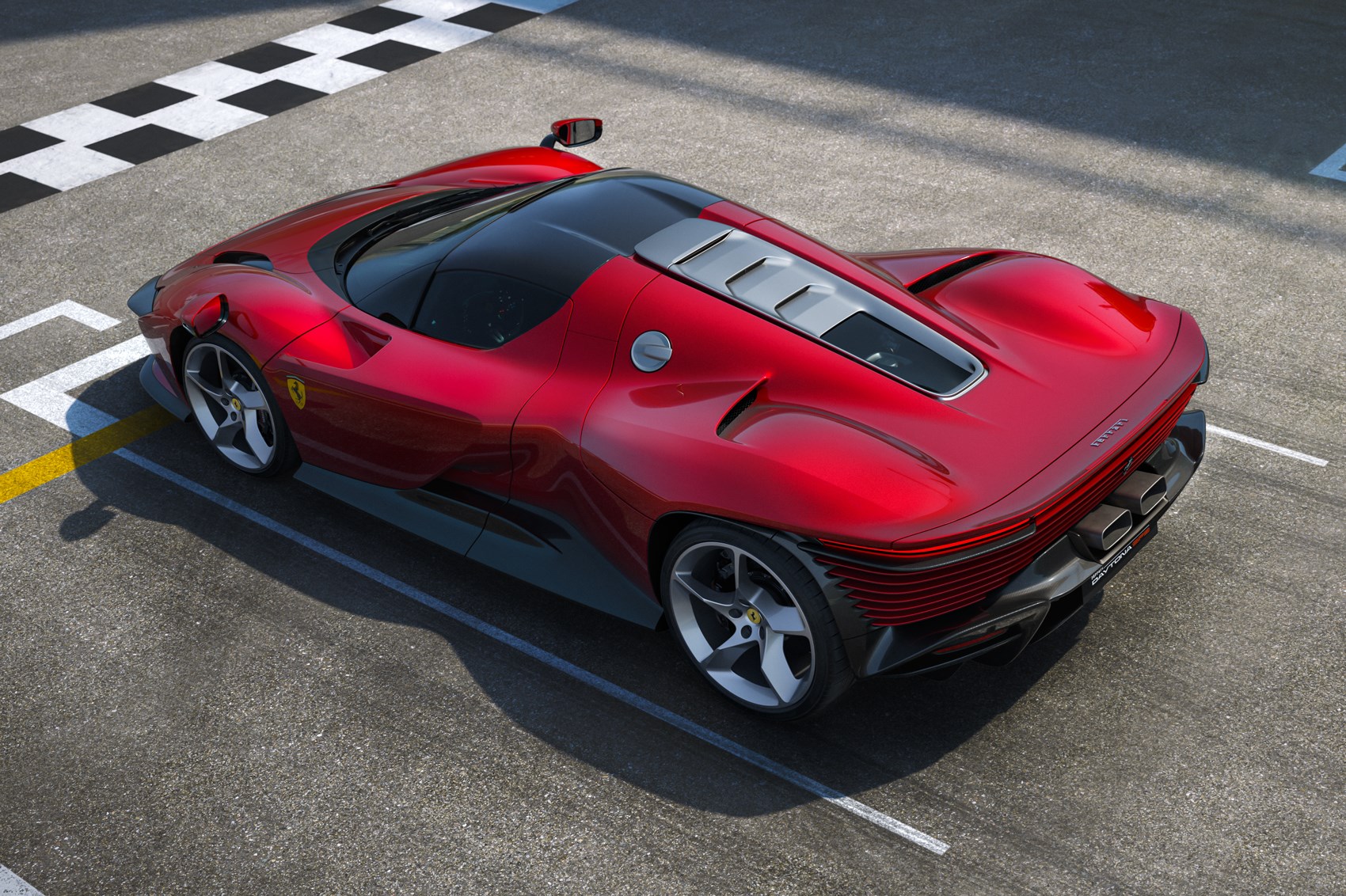
Ferrari will be making 599 units of the Daytona SP3; a number buoyed in part by strong demand. As with the Monzas, the entire production run is already sold out.
Ferrari’s Head of Marketing announced that all 499 owners of the Monza SP1 and SP2 would also be buying the Daytona SP3. The balance of 100 units was offered to a select group of Ferrari collectors. Each Daytona SP3 is priced at about $2.3 million—it does not take a math genius to work out the windfall coming Ferrari’s way.
An Interesting Future for the ICONA Series
The Icona concept is one of Ferrari’s four product strategy pillars. The others are the Sports Cars, Grand Tourers and the Special Series based on existing models. As seen with the Monza SP1 and SP2 and, more recently, with the Daytona SP3, the Icona concept is playing its part in significantly increasing the carmaker’s revenue and profits.
Ferrari is expected to start deliveries of the Daytona SP3 by the end of 2022, and the production run will continue till 2024. There is no reason to think Ferrari will not continue this highly lucrative aspect of the business.
At the launch of the new Daytona SP3 in Florence, Ferrari’s Chief Communications and Marketing Officer Enrico Galliera stated that there are ‘four or five potential concepts we could work on.’ Ferrari’s history is littered with legends, icons like the 250 GTO, Ferrari Dino 246 and the 288 GTO, that helped shape the world of performance-oriented motoring.
In agreement with Ferrari’s CCO, there is no shortage of options in deciding the inspiration for the next Icona model. Over to you then, Ferrari.


